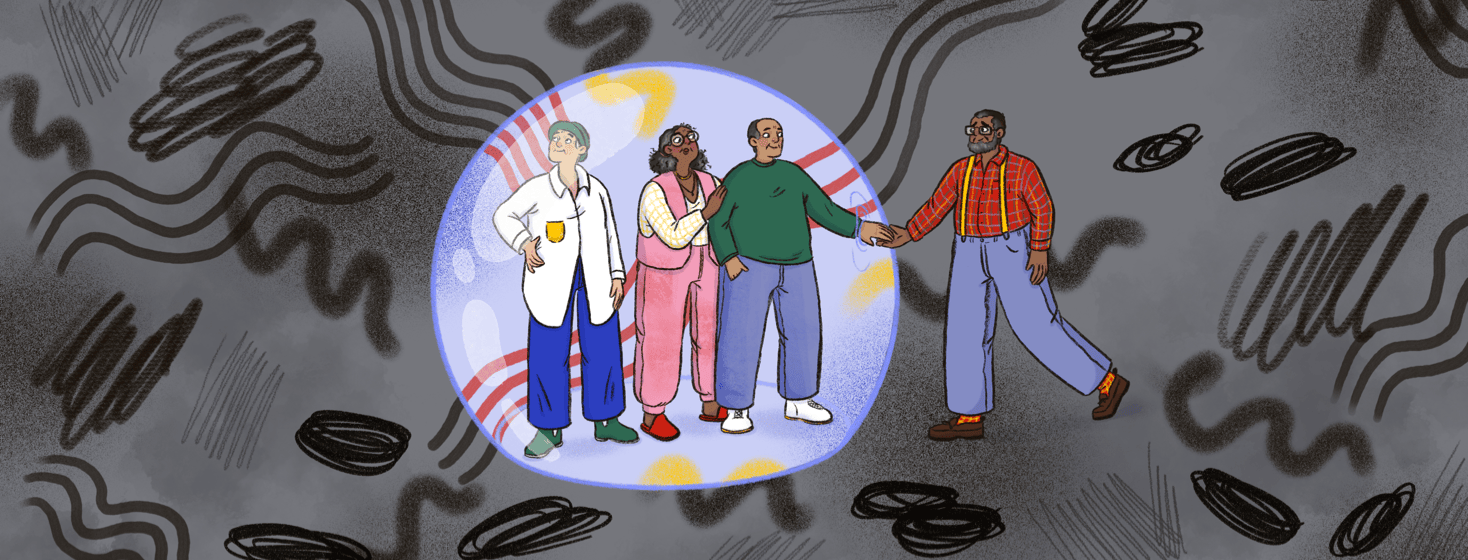Resilience is the Name of the Game
I'm a big Brene Brown fan. If you haven't checked her out, she's a shame researcher and author of several books that help people to live full, authentic lives. One of the big topics she touches on is resilience, or the ability to overcome adversity.
There is a whole chapter on it in The Gifts of Imperfection. I went back to this book for that purpose after recent announcements from the U.S. government about Alzheimer's therapies and their accessibility.
Reading this chapter again allowed me to see that those on this journey with Alzheimer's and their families are pillars of resilience. Let me break it down for you.
Solve problems
Brown lists 5 factors that showed in her research as defining resilient humans. The first is that they have good problem-solving skills. I don't know of a group of people this describes better than someone diagnosed with mild cognitive impairment. Gathering information, asking questions, seeking support, and, when those all fail, finding a solution for problems as they arise are cornerstones to managing life in the early stages of Alzheimer's.1
Point one for resilience in the face of Alzheimer's.
More likely to seek help
When made aware of the problem, a resilient person finds those who can help them. Everyone currently reading this article is seeking help from this vibrant community. I see you in the comments offering solutions to each other. I see you reading posts from caregivers and advocates and taking action. I see you reaching out to the Alzheimer's Association and memory care centers to find out who to see, who can help you, and what the ideal form help can take.
It's beautiful and resilient, point 2.
Featured Forum
View all responsesBelieve in their power
Brown lists this as "They hold the belief that they can do something that will help them to manage their feelings and to cope." I would be lying to you if I said this is true 100 percent of the time. We are human and therefore cry in the face of adversity, get overwhelmed by the sheer scope of work to be done, and curse God or a higher power for putting us on this journey. But I also know that we, as a community, survive. We believe that we can find change. We show up at walks, we fundraise, we host events, we believe. Every dollar we capture is because we believe we can affect change, and, barring that, we believe that gaining dollars, telling our stories, and sharing what we know with others will both help us and other human beings on a similar path.1
Point 3 for resilience.
Have social support
There are certainly times when we feel alone in our individual fights against Alzheimer's. Alone in the ability to find that word we're looking for, alone in caring for our loved ones, alone in the grief of losing who we are and who we thought we would be. But you're here among friends who love and support you on your journey from afar. You're in support groups filled with people who are with you closer to home. And you're in family units (chosen and otherwise) who, although their help may not be exactly what you need or how you'd like it, support you in possibly the only ways they can.
Four points for resilience.
Feel connection with others
It's my great hope that you feel that connection from this site. But you can also see it showing up elsewhere, in little ways and bigger ones.
It's there when the neighbor returns your husband after he fled the apartment in a towel, thinking the fire truck driving Santa around the neighborhood was the fire alarm. It's there when your granddaughter stops by for a cup of tea, calling ahead to see if you need anything. It's there when the neighborhood kids you watched grow up start mowing your lawn without asking or accepting payment. It's there when your loved one's face lights up with recognition and gives you the warmest embrace. It's there when you hear a laugh you know so well that it rings a chord inside you. You don't know what or who, but you look at the person it came from and smile filled with all of the love in the world.
Resilience score: 5/5

Join the conversation